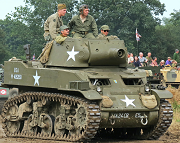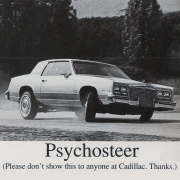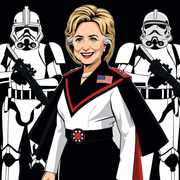|
Rodrigo Diaz posted:You can't do this in the ancient period with iron or steel weapons, game of thrones lied to you. With bronze age weapons there is no suggestion of standardization afaik. Wait, what's the issue there? Too much carbon content?
|
|
|
|

|
| # ? May 18, 2024 09:01 |
|
If you're interested in why and how WW1 happened - not the actual war itself, but all the geopolitical and military clusterfuckery that lead to it - I strongly recommend The Sleepwalkers and The Guns of August. Guns of August is a bit dated now and The Sleepwalkers is a much more recent work, but they're both good reads if you're interested in the subject. If you can only read one, though, I'd say Sleepwalkers.
|
|
|
|
Mycroft Holmes posted:Could you recommend some books on the Iran-Iraq War? I heard it was one of the only modern instances of trench warfare. The Iran–Iraq War: A Military and Strategic History is a very good book about the whole thing, i also would reccomend The Twilight War: The secret history of Americas 30 Year conflict with Iran this book covers the tanker war and it also gives historical context to why Iran ended up the way it did and the history of American interference/involvement before and during the war.
|
|
|
|
There's been a trench war going on in Korea for the last 60 years.
|
|
|
|
Fangz posted:Wait, what's the issue there? Too much carbon content? Bronze melts at 950 C, steel melts at 1300 C and iron is usually refined/cast at 1500 C and steel/iron was usually not re-melted after the original smelting. So yeah it could be done at the time, but it would involve a really big forge operation to melt down steel and they probably wouldn't have efficient enough crucibles or forges to melt large batches. It's not exactly like recycling metal is a new thing. That said I don't know if it was done, but they definitely had the technology to re-forge things.
|
|
|
|
E: /\ that doesn't even get into the way swordmaking metallurgy eventually made it important to put metals of different hardness in different, specific parts of the blade so that it kept an edge but didn't shatter when hitting something hard. If you're melting down blades made in that fashion, you're not able to reforge an equally capable weapon because it's all mixed together. So maybe prior to that advancement it was acceptable to just reforge stuff you melted down but once the minds of the day realized you wanted hard metal wrapped around a more flexible core (or maybe the other way around, not a swordsmith) they probably stopped just melting everything real quickly unless they had the ability to adjust mineral content on the fly too.Nenonen posted:There's been a trench war going on in Korea for the last 60 years. I don't know if you can call it a war in anything other than "well it was a ceasefire and not an actual end to the state of war" because once you've been under a ceasefire for 63 years it isn't a loving war anymore. FAUXTON fucked around with this message at 15:22 on Sep 6, 2016 |
|
|
|
NK periodically fires across the border just to keep the south koreans on their toes though.
|
|
|
|
FAUXTON posted:I don't know if you can call it a war in anything other than "well it was a ceasefire and not an actual end to the state of war" because once you've been under a ceasefire for 63 years it isn't a loving war anymore. A cold war maybe? I wouldn't call it an actual trench war, even if there are entrenched units facing each other. Still, with the Blue House raid, ROKS Cheonan, axe murder incident, Yeonpyeong island shelling, infiltrator submarines, and probably a bunch more that don't spring to mind, it's still a war.
|
|
|
|
FAUXTON posted:E: /\ that doesn't even get into the way swordmaking metallurgy eventually made it important to put metals of different hardness in different, specific parts of the blade so that it kept an edge but didn't shatter when hitting something hard. If you're melting down blades made in that fashion, you're not able to reforge an equally capable weapon because it's all mixed together. So maybe prior to that advancement it was acceptable to just reforge stuff you melted down but once the minds of the day realized you wanted hard metal wrapped around a more flexible core (or maybe the other way around, not a swordsmith) they probably stopped just melting everything real quickly unless they had the ability to adjust mineral content on the fly too. You can kind of, but im pretty sure they wouldn't have done so, the actual hardness of the edge of the sword was done by forging/tempering or potentially carburizing by the swordsmith after the production of the metal itself (a set of processes called case hardening), furnaces didn't really start to get advanced enough until the 1800's to produce steels of a specific grade, but what that does mean is that theres no real advantage to recycling the steel of weapons as you still need to go through the same set of processes to produce a workable weapon at the end of it as you would from any other raw ingot. Im pretty sure that furnaces hot enough to melt steel at the time also introduced a significant amount of carbon into the mix from the charcoal used in them, which then had to be purified later on in the process so you didnt have incredibly brittle pig iron at the end of it.
|
|
|
|
So to drag up D&C chat back upSpacewolf posted:I'd love to see a summary of the more common talking points on each side, if you could, bewbies. preface: this is me parroting a bunch of smart people who know a lot about this stuff; I'm just at the same venues and I find it really interesting so I listen sort of closely. There are a lot of actual org behavior "terms" and "other things" that I do not know, so if anyone who DOES know this stuff wants to amend/correct my wordology please do so enthusiastically...the limit of my personal academic knowledge is the couple of OB classes I had to take in grad school. stage: this stuff all falls under the umbrella of the thing the army calls "institutional training", that is, the formal, schoolhouse type training environments that are done on an army-wide basis. Think: basic training, job training, NCO/officer training, and so on. Institutional training differs from unit and individual training in that it is strictly controlled by big army, they're carefully planned and executed, issue diplomas/certifications, and so on. The army is trying very hard right now to transform itself in some way or another to meet what we think the challenges are going to be mid-century, and institutional training in general hasn't been significantly overhauled, or even really analyzed, since the Vietnam era...various attempts have been made to modernize things and so on, but they are usually either dialed back or axed for any number of reasons. So me, I find myself in neverending seminar/wargame things wherein this stuff gets discussed for hours. At practically all of them, there are three basic factions: a cohort of retired general officers lovingly/disparagingly referred to as "greybeards", a bunch of super smart folks with little to no military experience with PhDs in various disciplines that the army pays big money to give outside/expert perspectives, and then a bunch of field-grade (mid career) officers, civil servants, and contractors. The general officers are usually hardline Cold Warriors - they usually entered the military just after Vietnam and left in the early days of GWOT, so their primary combat experience was Desert Shield/Storm and maybe a TOC as a colonel or general in early OIF. They remember the trainwreck that the army was in the 70s, and in fact this was really during their formative years so it kind of defines their perspectives in a lot of ways. They also remember BIG ARMY, the giant armored cold war force of the 80s, as this was where they did their field grade time. The current field grade officers etc, on the other hand, almost universally came in during the post-cold war drawdown, chilled during the easy pre-9/11 military, and then have multiple combat deployments in our various COIN fights since then (this is my cohort by the way). The reason I say this is to sort of outline who thinks what; I'm sure you can guess at this point how the battle lines are generally drawn up. So now to the actual topic. First, we have to establish exactly what the point of basic training is from an OB perspective. Among other things, it: 1. The practical stuff. it teaches you how to do basic soldier things like work a rifle and move around tactically and make your bed and keep generally clean and so on. 2. The culture stuff. it provides the "price of entry" into the organization, in the same way that training camp for sports, or hazing for a fraternity, or dissertations for PhD candidates, or any other difficult rite-of-passage thing. This gives the recruit some investment in the organization - you did something hard, so now your membership has value. It also provides current members in the org a basis for mutual understanding with new members, since they did it also. It also adjusts the recruits to cultural norms and behaviors in the org, teaches them expectations and rules, and so on. 3. The interpersonal stuff. For most recruits, this is the first big organization they've been a real part of. In BCT, you're a part of a squad, and then a platoon, and a company. You have to learn to live and work with people you've never met and might be from wildly different backgrounds, in VERY close quarters, in fairly stressful situations. The military is unique in this respect to other large orgs as it has a large number of new members going through the process all at the same time, whereas the far more common approach is to introduce new members individually into already established small groups (think: your first day of work, for most of you). So if these are our general objectives in basic training, what does D&C add to this process? - It teaches a bunch of cultural norm stuff, like saluting, standing at attention, marching, and so on. - It creates the first true team oriented objective. In the army and marines at least, there is a D&C competition between platoons during each cycle, and so the platoon has to work together to achieve said goal. D&C is unique in this respect because it teaches the value of "the individual not loving up things for the group" (I'm sure there is an academic term for this but I don't know what it is), which is obviously very important in a military setting. The consequences for getting out of step marching or loving up the manual of arms are minimal; the consequences for loving up your job in a combat situation can be enormous. So, D&C provides this method for easing new members into this setting where their individual actions can have enormous consequences, along with introducing peer pressure as a primary method of policing this behavior (at least for low level members). - It gives the recruit a pretty profound connection to the profession of arms. Essentially, ever since we as a species have had soldiers, we've had D&C. Hoplites formed straight lines and left and right faced. Legionnaires marched about in columns and rows. Knights saluted one another. Musketeers did the manual of arms. And so on. Speaking for myself, the first time you really feel like a soldier is when you're issued a rifle and begin to drill as a platoon with your drill sergeant yelling and the rifle butts clicking and the boots stomping, and so on. - It teaches immediate, reflexive response to command. This was traditionally the primary focus of drill - instilling discipline, providing the officer with a coherent, rapid-reacting formation that could do as it was told to do quickly and efficiently, which made everything from maneuver to marching to firing more effective. Now, the debate. The overarching issue is what the army wants/needs to look like in 15-20 years, and how does it get there. The approved vision for the individual soldier/leader is what they're calling "operational adaptability"; that is, a soldier comfortable with ambiguity, able to act and react appropriately without direct instructions, and so on. This vision is really a byproduct of OIF more than anything else - militaries have always wanted this quality in leaders (especially senior leaders), but in general, discipline is preferred to initiative at lower levels. So, the major fundamental shift is changing the focus at the individual training level to prefer initiative, which more or less fundamentally has to come at the price of discipline. The greybeards, as you can imagine, are generally opposed to this. They still see the sergeant as fundamentally a follower - his basic task is to link his soldiers with the orders of the officers above him and then ensure those soldiers act in accordance with those orders. The soldier basically does what the sergeant tells him to do and very little else. They recognize the need for soldiers and NCOs who can act on their initiative, but when pressed with the reality that the two are somewhat mutually exclusive, they always side with discipline. Coincidentally, they favor action with larger formations (read: divisions > brigades) and are not big fans of modularity and task organization. They see D&C - particularly the discipline element of it, as very fundamental to any military training. The field grades almost universally grew up in an environment where they wanted more initiative from their subordinates, and as such they generally want soldiers and NCOs who can act appropriately even when given vague or incomplete orders. This is reflected in the "mission command" philosophy - relatively complete freedom of action within defined (or undefined?) limits. This essentially breaks down the traditional top-down relationship between military echelons in a lot of cases. Instead, subordinate units are acting largely independently in accordance with their view of the battle; higher's job is to prescribe limits and feed them information. When you neck this down to the individual soldier or squad, what you need is constant application of initiative - not only not waiting for orders if they aren't there, but not acting in accordance with orders if they are not aligned with your current understanding of the situation. So, the D&C reflex-action stuff has very little application here. In other words, if we want soldiers who react rapidly and appropriately to the situation, why are we teaching them to react rapidly and appropriately to orders? The PhDs generally offer a lot of counterexamples and are very confused as to why the army is as backwards as it is. Football team counterexamples are a constant - football players are carefully drilled in running elaborate plays requiring everyone to move with one another in sync and so on, but often plays break down, and the player who can improvise well is prized. They try and build this comfort with the system breaking down into their training, with varied results, but the value of the ability is clear. They also do not understand why the military is so slow to adopt change (this goes for practically every area, not just training), especially when "agility" is supposed to be so important. You hear "organizational inertia" a whole lot, basically. D&C is kind of a central pillar of this inertia - no one really knows why marching around parking lots in formations is still worthwhile, especially in combat units, but that's how I was taught, and that's how my teacher was taught, and his teacher, and so on. Ultimately the question is, can we provide the useful elements of D&C (teamwork, cultural aspects, etc) through other means, thus getting around the potentially deleterious effects of D&C on leader development? The answer is obviously yes, but it would take a really significant culture shift, and really, a shift in how pretty much all of us view the profession of arms.
|
|
|
|
Is OIF a widely accepted term or can we lobby for Iraqi Wars: Revenge of the Bush?
|
|
|
|
Rodrigo Diaz posted:You can't do this in the ancient period with iron or steel weapons, game of thrones lied to you. With bronze age weapons there is no suggestion of standardization afaik. Never saw GoT, but I ask this stuff because I don't know at all.
|
|
|
|
Re: book chat, I rather enjoyed Tracey Rihll's The Catapult: A History. It has a pretty heavy focus on Roman torsion catapults, but also goes into some interesting classical siege tactics. She does get a bit speculative on the prevalence of manuballistae in the Legion, but nothing that had my eyes rolling.
|
|
|
|
Did any of the guys you study, Hegel, ever consider launching a battle at night?
|
|
|
|
lenoon posted:Is OIF a widely accepted term or can we lobby for Iraqi Wars: Revenge of the Bush? I've always used GW2
|
|
|
|
lenoon posted:Is OIF a widely accepted term or can we lobby for Iraqi Wars: Revenge of the Bush? The War against Terror, or TWaT
|
|
|
|
Why did China bother to salvage pre-WWII and forty year-old sub HMS Poseidon?
|
|
|
|
Are bronze weapons hardened etc.? It occurred to me that a lot of techniques used with Fe-based materials, like messing with carbon content etc., probably do not work the same way in a completely different metal. It seems safe to assume that over the hundreds of years they messed with the stuff they figured out some manufacturing tricks to optimize the material's properties. Is making a sword from bronze a completely different ballgame than making one from iron? Are they optimizable to a similar degree?
|
|
|
|
aphid_licker posted:Are bronze weapons hardened etc.? It occurred to me that a lot of techniques used with Fe-based materials, like messing with carbon content etc., probably do not work the same way in a completely different metal. It seems safe to assume that over the hundreds of years they messed with the stuff they figured out some manufacturing tricks to optimize the material's properties. Is making a sword from bronze a completely different ballgame than making one from iron? Are they optimizable to a similar degree? Bronze can be work-hardened, and the ancient smiths may have added extra stuff in bronze, eg. arsenic to make the it harder.
|
|
|
|
I did not know about work-hardening and just reading the History section in the Wikipedia article on it makes me happy that I learned about it. That is really cool.
|
|
|
|
bewbies posted:(Bewbies words of beauty ending with:) This is a drat good writeup, thank you. My personal suspicion: You could try, but dropping D&C has a huge risk factor to it in terms of "at some point prior to the end of basic you want soldiers feeling 'Oh My God I'm really in the army and this is actually kinda awesome and deeeeep'." Because as much as people downplay the impact of esprit de corps and tradition upon a military force - it matters, I figure. Not that a lack of D&C will spell doom, but there are edge cases where D&C might be damned helpful that nobody can think of. (Actually, I can think of two right off the top of my head. The first might be called "military-political interactions" - the ceremonial stuff between countries where the ability to put on a good show like it's nothing might just scare the other guy enough to get him to be willing (these are rare but signalling is a thing); the second is, well, riot control. That's where D&C can actually come in handy, because most riot control techniques for the guy on the ground are (seemingly) just applied drill, anyway.) There's also the reality that if you drop it and then you need it again (for some unknown reason), you'll have to create stuff where you wouldn't have had to.
|
|
|
|
lenoon posted:Is OIF a widely accepted term or can we lobby for Iraqi Wars: Revenge of the Bush? Gulf war II: The Wraith of Cons
|
|
|
|
Pontius Pilate posted:Why did China bother to salvage pre-WWII and forty year-old sub HMS Poseidon? Curiosity and practice, probably.
|
|
|
|
ALL-PRO SEXMAN posted:Curiosity and practice, probably. It would also be a source of low-background steel wouldn't it?
|
|
|
|
Mr Luxury Yacht posted:It would also be a source of low-background steel wouldn't it? Could be, but it's most likely it was done as a training exercise since China's salvage diver unit had just been created in 1972. Poseidon was a convenient wreck to get experience with because it was reasonably similar to Chinese submarines in service at the time and if things went wrong nothing of value would be lost.
|
|
|
|
aphid_licker posted:That sword just melting like a fuckin chocolate fondue made me a little angry. I just looked it up and otherwise 100% historically accurate Conan the Barbarian does it too. Delicious cast iron swords, for when you want your swords blunt and brittle as hell.
|
|
|
|
 Also the placard for the T-46-1 behind the dog, it's english section was for the T-44. Why are there so many basic loving mistakes like this? However the GPW museum in Moscow is loving baller and combined with the "War Machine and Engineering" exhibit that is on the grounds it will easily take up a full day to see everything, highly recommended!
|
|
|
|
Xerxes17 posted:
You would not BELIEVE the poo poo I spot at museums. Most of the really big name ones will get the history right but even then the equipment sperg poo poo it a crapshoot. Smaller museums? Lol
|
|
|
|
A museum I worked at had the only unaltered M1917 US Tank known in existence. The people running it put it in as part of their WW1 exhibit, and put painted cement on it to make it look like it was covered with mud. When the current curator got his job and saw how it was presented, he had it immediately pulled, cleaned and restored.
|
|
|
|
Feral_Shofixti posted:There was at least one instance of this where the Italians were in between the Romanian and Hungarian divisions because the two refused to work with each other, IIRC Not just one. Hungaria and Romania were basically fighting for the same land, won or lost during WW1 and given or taken by the Germans via the 1st abd 2nd Vienna Awards. As a result, both the Hungarians and Romanians hated eachother and wouldn't cooperate at all.
|
|
|
|
spectralent posted:Thinking about it, I just realised a decent metric for a GBH: Would going back in time to tell someone how it turned out change it? I can't see telling the French they need to focus on the attack going well, and I can't see telling Hitler his crusade to the east is doomed working either, but I can see "The guys coming through the Ardennes aren't the diversion, they're the main force" being something someone might actually act on. Who would believe you? Why?
|
|
|
|
bewbies posted:The greybeards, as you can imagine, are generally opposed to this. They still see the sergeant as fundamentally a follower - his basic task is to link his soldiers with the orders of the officers above him and then ensure those soldiers act in accordance with those orders. I was interested in this: the standard trope (probably inaccurate) in Commonwealth militaries is the green officer with the experienced sergeant who really runs the platoon, the only three words a second lieutenant needing being "carry on, sergeant", and the classic "are you sure, sah?". Is that stereotype common in the US?
|
|
|
|
Fangz posted:Did any of the guys you study, Hegel, ever consider launching a battle at night? i have heard of night actions, especially during sieges--like if you want to try to force the breach then. i have not heard of an entire battle.
|
|
|
|
Nude Bog Lurker posted:I was interested in this: the standard trope (probably inaccurate) in Commonwealth militaries is the green officer with the experienced sergeant who really runs the platoon, the only three words a second lieutenant needing being "carry on, sergeant", and the classic "are you sure, sah?". Is that stereotype common in the US? That'd be more appliance to a senior sergeant whose been in for years/decades. Your buck sergeant whose only been in service a year or two more than the privates? Not so much.
|
|
|
Nude Bog Lurker posted:I was interested in this: the standard trope (probably inaccurate) in Commonwealth militaries is the green officer with the experienced sergeant who really runs the platoon, the only three words a second lieutenant needing being "carry on, sergeant", and the classic "are you sure, sah?". Is that stereotype common in the US? 
|
|
|
|
|
Nude Bog Lurker posted:I was interested in this: the standard trope (probably inaccurate) in Commonwealth militaries is the green officer with the experienced sergeant who really runs the platoon, the only three words a second lieutenant needing being "carry on, sergeant", and the classic "are you sure, sah?". Is that stereotype common in the US? The idea of a green junior officer who leaves everything to the NCO exists, but American social classes are different and we generally don't place outsize value on sang-froid. That officer is more likely to be represented as a dangerous incompetent or an impediment to his men, than as a benign or comic figure. Take Vietnam-era "fragging" as an example.
|
|
|
|
Nude Bog Lurker posted:I was interested in this: the standard trope (probably inaccurate) in Commonwealth militaries is the green officer with the experienced sergeant who really runs the platoon, the only three words a second lieutenant needing being "carry on, sergeant", and the classic "are you sure, sah?". Is that stereotype common in the US? In the Marine Corps it's a relatively newer stereotype, as the majority of officers came from the enlisted ranks until WW2. And then it's more that the second lieutenant don't know, let the staff sergeant run it. Speaking from the artillery side, not as much, because the officer and staff sergeant are responsible for different, complimentary things; it would be hard for one to do the other's role simultaneously (or you're an FO and don't have a ssgt). Again, also a relatively newer thing; the artillery battery was officer heavy until the 20th century, with lieutenants doing jobs now filled by NCOs. The FDC was manned by several officers until some of those roles began to be replaced by NCOs during WW2 and now it's a one officer job.
|
|
|
|
Nude Bog Lurker posted:I was interested in this: the standard trope (probably inaccurate) in Commonwealth militaries is the green officer with the experienced sergeant who really runs the platoon, the only three words a second lieutenant needing being "carry on, sergeant", and the classic "are you sure, sah?". Is that stereotype common in the US? That is a stereotype in the US also , certainly one that the NCO corps is very fond of. the platoon leader position in general is a very developmental one, and at least in theory the Platoon Sergeant is supposed to act as something of a mentor as a platoon leader and so on. it doesn't necessarily work that way in practice though, as he might imagine. Speaking anecdotally, I was prior service had some poo poo NCOs so you can probably guess how that worked itself out. Numerous peers of mine had similar experiences. As such we are a little touchy about the accuracy of said stereotype.....
|
|
|
 He preys on the men. He'll snaffle kit, belts, frogs, haversacks, all entered or found lost by Obadiah, which leads to floggings unless he gets paid. Then wives. He beats men till their wives come to him, which I call rape. I've seen his like before. An evil man marching in a cloud of pipeclay. And because he kicks up salutes, obeys every officer, he's bombproof to all but us. Solid character, shame the TV series remained accurate in offing him. Fantastic actor.
|
|
|
|
|

|
| # ? May 18, 2024 09:01 |
|
Jobbo_Fett posted:Who would believe you? Why? I dunno; it just seems far more plausible than trying to convince hitler one of the foundational planks of his beliefs is flawed.
|
|
|










































